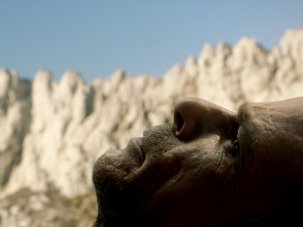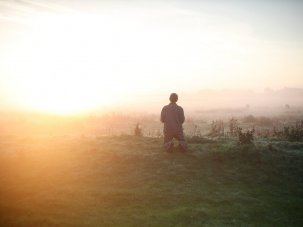Web exclusive
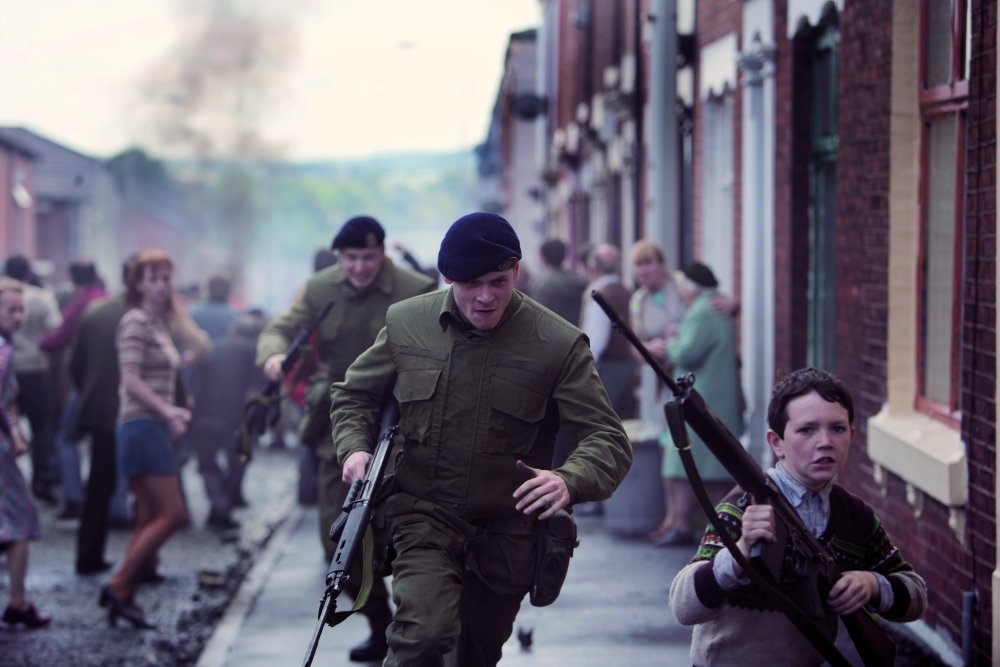
’71
With its big weekend gone and a handful of films worth celebrating, the 2014 Berlinale is in a relatively robust state, as long as you factor in films that were already at Sundance or are about to be released. These latter would include the enthralling, handsomely made study of Australian rock singer Nick Cave 20,000 Days on Earth, John Michael McDonagh’s bittersweet Sligo Bay tragicomedy Calvary – about an Irish priest told by a killer he’s got a week left to live – and Lars von Trier’s Nymph()maniac Volume 1 – though Berlin has aced Sundance here by showing the longer “director’s cut”.
However, the hit of the festival so far has probably been Yann Demange’s ’71, a taut, insightful, moves-at-a-clip thriller set in Northern Ireland during the Troubles, shown when the festival needed a lift, since there had been nothing much to talk about after Wes Anderson’s winning opening mitteleuropa chase-saga on a wedding cake The Grand Budapest Hotel.
’71 is every bit the gripping soldier-on-the-run intrigue drama one might have suspected, but it’s also splashily imagined, like night-time graffiti, and good at wrong-footing viewers’ expectations. Its premise is simple – Gary Hook (an excellent Jack O’Connell), a wounded, disarmed private, is left behind by his unit in the Falls Road area of Belfast and must find his way back to barracks. In stark Darwinian terms, it plays out how compromised, ruthless and determined to be right everyone involved with the often-internecine struggles between the British army, the official IRA, the provos and the UDA were – but it always puts a bewildered, battered humanity to the fore.
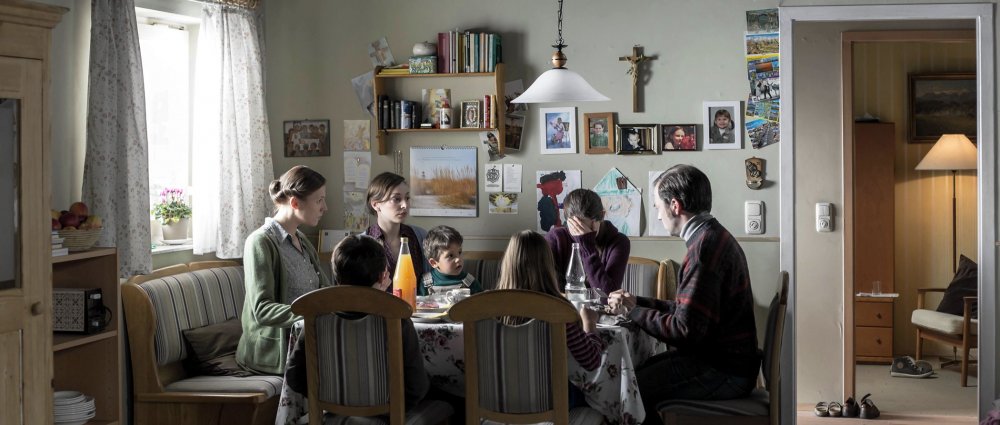
The Stations of the Cross
Sectarian religious matters have been Berlin’s obvious theme and the next best discovery in the competition, Dietrich Brüggemann’s The Stations of the Cross (Kruezweg), goes right at it by portraying the life of Maria (Lea van Acken), a 14-year-old born into a fundamentalist Catholic family, as if she were Christ in his last moments on earth. It is difficult to write about this rigorous, note-perfect, mantelpiece-neat melodrama without spoiling the pleasure of watching it, so I’ll keep the details spare.
It begins with Father Weber (Florian Stetter) instructing Maria’s religious study group about the meaning of sacrifice, which she – a pale, hollow-eyed, wilting figure – takes more seriously than she ought, partly out of a stubborn need to push back at her domineering mother (a brilliant Franziska Weisz). Made in a small number of shots, each framed and timed to perfection by a dazzlingly accurate ensemble cast and crew, not least van Acken herself, The Stations of the Cross nonetheless comes with a bigger surprise: its ‘wicked’ sense of humour, which only enhances its perfect poise between belief and scepticism.
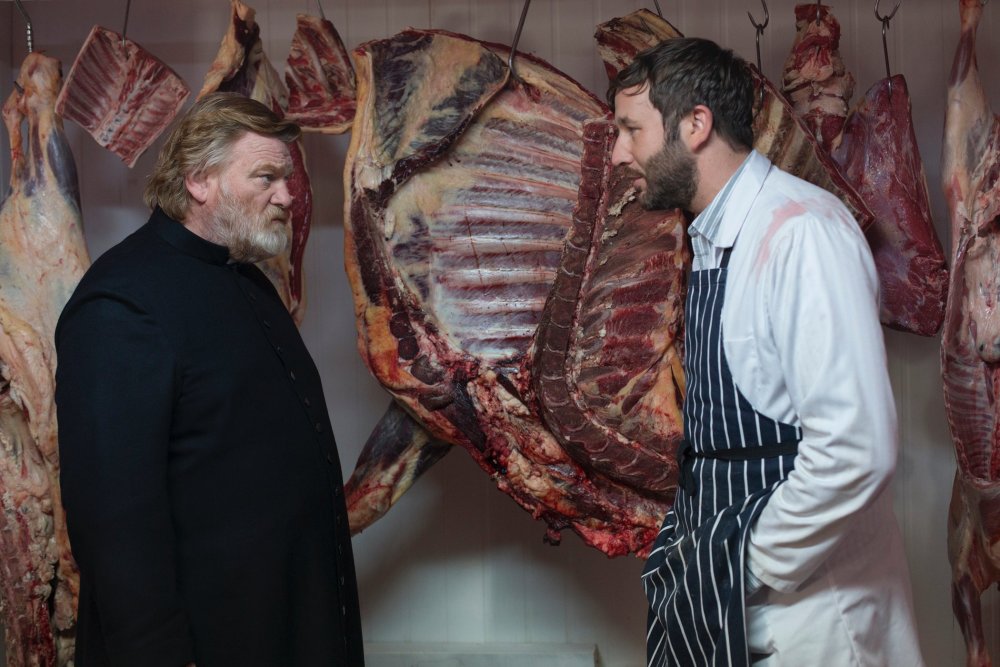
Calvary
By contrast, there’s no doubting the skepticism of Calvary, which offers competing blackly comic bitternesses through its own ensemble cast of neat performers who have an excellent script to hand, not least the estimable Brendan Gleeson as the priest counting down the days to his possible execution. It’s a well-made piece but I’m still mulling over elements of it so I’ll save my conclusions for Sight & Sound’s print edition. I’ll do the same, too, with the innovative Nick Cave documentary, which deserves further consideration of a kind that writing on the hoof at festivals isn’t always made for.
These highlights don’t give you the flavour of the regrettable mill-run here. There many films here that are plain bad, of course. More typical are the predictable works.
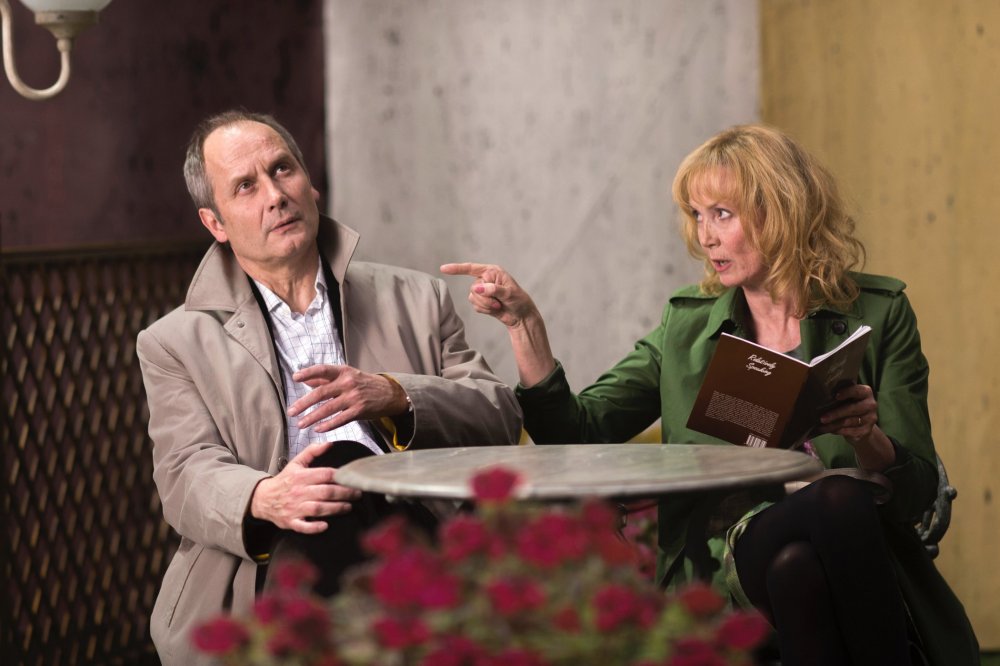
Life of Riley
If you like Alan Ayckbourn’s plays you may take to Alain Resnais’s adaptation play-within-a-play-within-a-film Life of Riley (Aimer, Boire et Chanter), which has the advantage of a rare, relatively tamped-down performance from Sabine Azéma (above, with Hippolyte Girardot) as one of a trio of wives enchanted by an off-stage roué in the last days of his life. For the veteran director, of course, it is all about the staging – with the usual bandes dessinées cross-hatching evident – but as such it should be stamped “for enthusiasts only”.
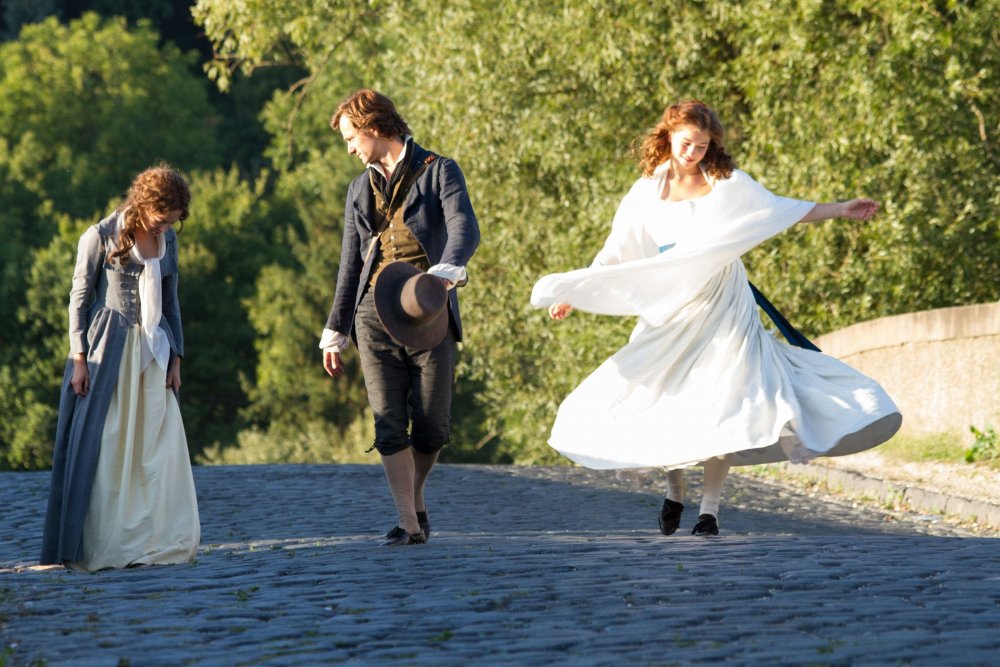
Beloved Sisters (Die Geliebten Schwestern)
Even though it is 170 minutes long, Dominik Graf’s Beloved Sisters (Die Geliebten Schwestern), which tracks the ménage a trois between the 18th century poet-playwright Friedrich Schiller and two Jane Austen-like financially compromised female siblings, does trot along, never missing a chance to add to its collection of genius-biopic clichés, as if it were constantly throwing its hat in the air.
Here’s hoping the rest of the Berlinale will have me doing the same.
-
The Digital Edition and Archive quick link
Log in here to your digital edition and archive subscription, take a look at the packages on offer and buy a subscription.





